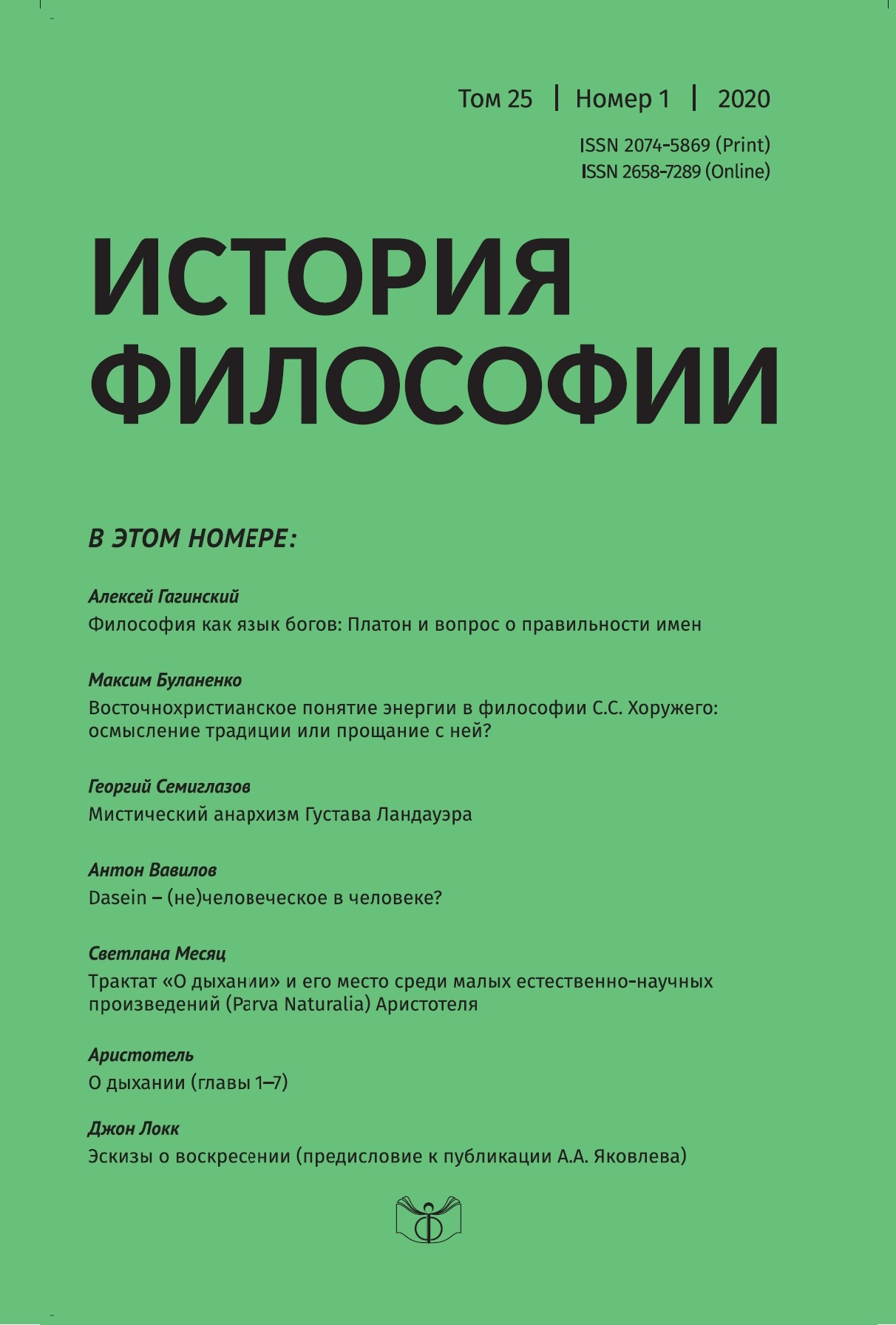The Eastern Christian Concept of Energy in the Philosophy of Sergey Khoruzhy: Explicating the Tradition or Saying Farewell to it?
Keywords:
Eastern Christian tradition, essence-energies distinction, Aristotle, St John of Damascus, Fr. Pavel Florensky, Sergey Khoruzhy, essentialism, metaphysics, philosophy of religion, dogmatic theologyAbstract
The Eastern Christian teaching on the divine essence and its energies goes back to the 4th century und acquires its status as a dogma during the 14th century Council of Constantinople. It emerged as an attempt at comprehending the relationship between God and the world: transcending all creaturely being, God’s essence is ineffable for humans, but His actual existence implies the realization of divine properties and activities pertaining to His essence. These were referred to as “energy” or “energies” after the term coined by Aristotle and were considered to be accessible to and participated in by the created beings. It was Fr. Pavel Florensky who first introduced the concept of energy, borrowed from the Eastern Christian tradition into the twentieth-century Russian philosophy. Ironically, in contradiction with that same tradition he used the concept of energy in an attempt to justify the possibility of acquiring knowledge of the essence of God and of everything. Later in that century, another Russian philosopher, Sergey Khoruzhy, made an opposite move and used this concept to develop a philosophy free of every kind of essentialism. However, this approach also leads to inescapable contradictions with the Eastern Christian tradition and, in addition to that, it ultimately renders the concept of energy virtually unintelligible (for example, said “energy” is no longer associated with actuality). Moreover, Sergey Khoruzhy’s theory turns out to be incompatible not only with the Eastern Christian teaching on essence and energies, but also with the Christian doctrine of salvation, as well as with the Calcedon’s dogmatic definition of the two natures in Christ. Thus, his theory might rather be considered as a creative contribution to contemporary Russian philosophy than as an authentic interpretation of the Eastern Christian tradition. Meanwhile, even the philosophical prospects of Sergey Khoruzhy’s concept of energy are controversial, for it is far from being clear, if its inconsistency is ever to be resolved in an appropriate way.

